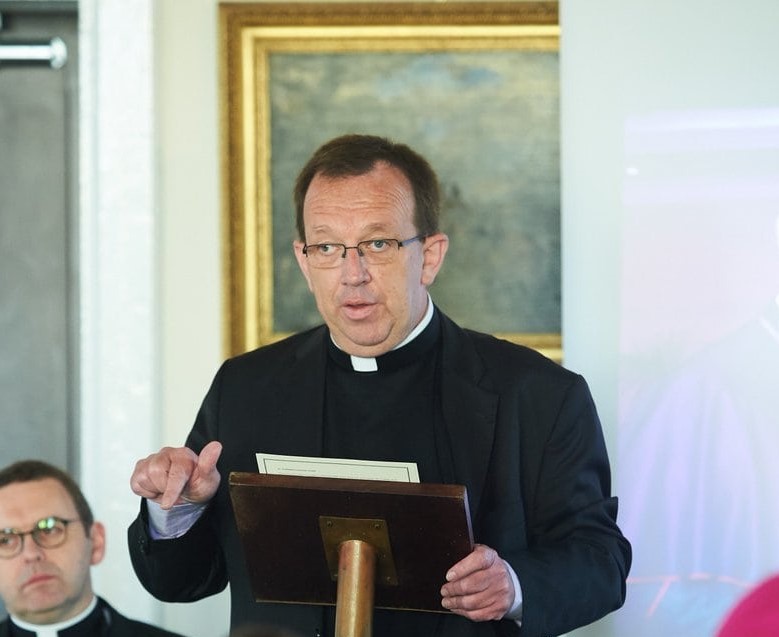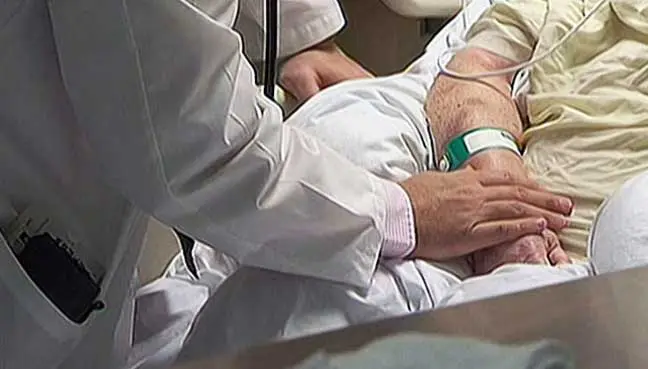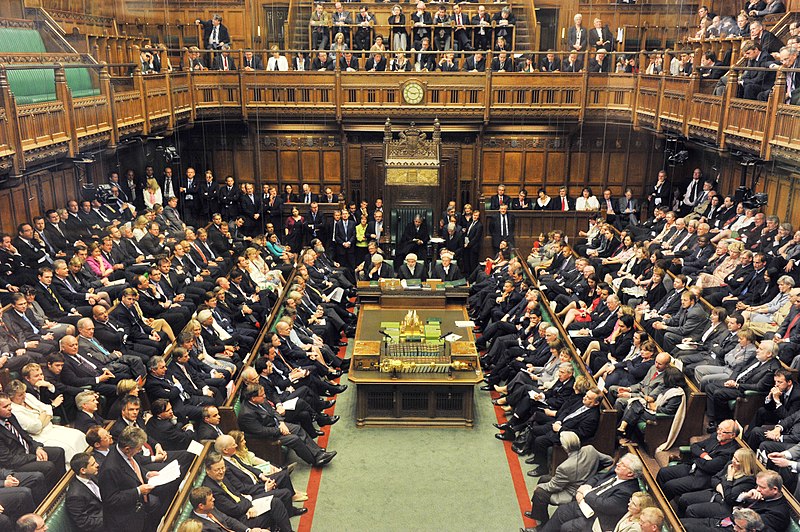
Nicaraguan police are now requiring priests to present themselves weekly at police stations for questioning and to submit their weekly homilies and list of activities for review in case they contain anti-Government content, according to a new report.
The crackdown follows a February statement by the far-left, anti-clerical Nicaraguan government which raised the prospect that the Daniel Ortega-headed regime could stop recognising new episcopal appointments made by the Vatican.
Some priests have said they are assigned a permanent surveillance official and are warned that they cannot leave their community without authorisation.
In the interrogation, these priests are reportedly forced to present copies of their homilies to the police to verify they do not contain any messages critical of the regime.

Cavan General Hospital has begun carrying out abortions making it the last of Ireland’s 19 maternity hospitals/units to do so.
According to the Pro-Life Campaign, since 2019, the Department of Health has piled on the pressure, forcing each of the hospitals in turn to start carrying out these life ending procedures – “procedures that we know have nothing whatsoever to do with genuine healthcare”.
On Tuesday, Senator Sarah O’Reilly of Aontú expressed her sadness and regret in the Seanad while the Catholic bishops of Kilmore and Clogher issued a statement, saying: “We are saddened by the availability of abortion services in our hospitals. Our hospitals were founded to care for the sick, save and improve our lives as well as to provide palliative care for those whose life is reaching its natural end.”
“We urge that the staff of our hospitals are assured of their freedom of conscience not to participate in the procurement of abortions. We stand with those staff, who refuse to be involved in abortion procedures and in this way promote and protect human life. We ask that the integrity of their stance not impact upon the progression of their career paths within the health services.”

Church attendance in the UK has risen among those who describe themselves as Christian, a major new survey says. It indicates that even as Britain secularises, there is a return to religious practice among those who identify as Christian, which is somewhat less than half of the British population. Overall, the number of self-identified Christians who attend church at least once a month has risen from 8pc to 12pc over the past six years.
The findings come in The Quiet Revival, a survey commissioned by Bible Society and conducted by YouGov.
It shows that the most dramatic church growth is among young Christians, particularly young men. In 2018, just 4 per cent of 18–24-year-olds said that they attended church at least monthly. Today this has risen to 16 per cent, with young men increasing from 4 per cent to 21 per cent, and young women from 3 to 12 per cent.
Co-author, Dr Rhiannon McAleer says these are “striking findings that completely reverse the widely held assumption that the Church in England and Wales is in terminal decline”.
‘While some traditional denominations continue to face challenges, we’ve seen significant, broad-based growth among most expressions of Church – particularly in Roman Catholicism and Pentecostalism. There are now over 2 million more people attending church than there were six years ago.’

Social Democrat TD Cian O’Callaghan has called on the State to seize assets of the female religious orders that ran most of the country’s mother and baby homes as a means of paying for redress for former residents of those homes.
The Dublin Bay North TD asked the Taoiseach in the Dail last week: “Why are these orders not being raided by the Gardaí? Why are their assets not seized?”
“When will the State finally flex some legal muscle when it comes to these religious orders?” Deputy O’Callaghan asked, saying it was “unbelievable that the approach of successive Governments to these orders, which operated as criminal networks, is to roll over.”
He was speaking as Government negotiator Sheila Nunan submitted a final report on Mother and Baby Homes redress with conclusions from talks with seven Catholic bodies and the Church of Ireland.
In response, Taoiseach Micheál Martin told O’Callaghan that “we cannot simply go in and raid the premises.”

The launch of smart phones has acted as a catalyst driving forward the precipitous decline in births across the West, according to new research.
Published in the Berlin Review, “The TikTok Baby Bust” by Anna Rotkirch, Research Professor at the Population Research Institute in Finland, argues that the technology had three distinct effects: on life templates and aspirations; on mental health; and on sex, relationship formation and duration.
First, the ideal life presented on screen rarely conveyed the messy rewards of parenting.
In Finland, Family barometers found an increase of childfree ideals in the 2010s, and that social media use is related to more uncertainties about parenthood.
Next, smartphones worsened the mental health of some, and especially young women, at a time when several new studies report lower fertility among people with mental health disorders.
Third, smartphones rewrote the Laws of Love and Dating, contributing to the ‘relationship recession’. Problematic smartphone use also created sexual problems, while merely spending more time on screens lowered relationship satisfaction & duration.

The take-up rates of baby-related leave by men is low with only around half of fathers availing of Paternity leave and a quarter taking Parent’s Leave compared to two-thirds of mothers.
That’s according to a new report by The Irish Human Rights and Equality Commission (IHREC) and the Economic and Social Research Institute (ESRI).
Using a 10% sample of all births between 2019 and 2022, the report analyses the characteristics linked with the take-up of Paternity and Parent’s Benefit, as well as the duration of paid and unpaid Maternity Leave. The findings reveal that higher paid fathers, who are more likely to receive employer top-ups, were more likely to avail of Paternity Leave. Take-up was also higher for those working in larger companies where a replacement might be more readily available.
Paternity benefit is paid to fathers for two weeks and must be taken within six months of the birth of a child.
Parent’s benefit is paid for up to nine weeks (increased from 7 seven weeks in 2024) is available separately for both parents and must be claimed in the two years following the birth of the child.

Boards of management of Catholic schools should spend far more time asking the question whether their school is truly Catholic.
That’s according to the bishops’ delegate on educational matters, Bishop Tom Deenihan.
Speaking at the AGM of the Catholic Primary Schools Management Association (CPSMA) in Athlone, the Bishop of Meath asked how would people recognise “that your school is Catholic without a saint’s name in the title?”.
Addressing Boards of Management in particular, he said: “How much time is given to real religious education, food that endures to eternal life in your school? It may be a difficult question and perhaps an unwelcome one but it is an important one and it is our business and our responsibility. What percentage of in-service time, of the annual budget is given to ethos and /or religious education by the Board? To paraphrase the gospel question, has faith now become the prophet not recognized in his own country, literally, the Board agenda?”
“Is your Catholic school the prophet not recognised in its own country or parish. If so, for God’s sake, will someone on the Board ask why?”

Australian jurisdictions have seen a ‘slippery slope’ of expanding euthanasia and assisted suicide (EAS) in a very short period of time.
It found clear evidence that Australian States are moving down a ‘slippery slope’ away from a system of assisted suicide as practised in the US state of Oregon and towards the widely-criticised situation of euthanasia in Canada.
Lead researcher Professor David Albert Jones said the report should open people’s eyes as to “just how quickly safeguards have been eroded or abandoned in Australia”.
“Rather than an example of the law working well it is an example of what happens when you prioritise access over safety. The practice of Voluntary Assisted Dying (VAD) in Australia is rapidly coming to resemble Medical Assistance in Dying (MAiD) in Canada. It is important for Parliamentarians in the United Kingdom to realise that once you legalise some form of assisted suicide or euthanasia you open the door to later expansion affecting more people and open to more abuse.”

Cardinal Vincent Nichols has decried the “deeply flawed process” to legalise assisted suicide as a bill makes its way through the UK Parliament.
Catholics have a “principled objection” to the change in law as every human life is sacred, said Nichols, the archbishop of Westminster.
But he added that there is a fundamental duty to ensure that legislation is “properly scrutinised”.
He said the Bill would “fundamentally change” many of the key relationships in the way of life in Britain, “within the family, between doctor and patient, within the health service.”
“Yet there has been no Royal Commission or independent inquiry ahead of its presentation. It is a Private Member’s Bill. The Bill itself is long and complex and was published just days before MPs voted on it, giving them inadequate time to consult or reflect upon it. The time for debate was minimal. The Committee examining the Bill took only three days of evidence: Not all voices were heard, and it comprises an undue number of supporters of the Bill. In short, this is no way to legislate on such an important and morally complex issue,” the cardinal said.

The Trump administration has warned the UK Government that it is closely “monitoring” the case of a pro-life campaigner who is being prosecuted for carrying out a peaceful protest near an abortion clinic.
The 64-year-old was charged with infringing a public spaces protection order after holding her sign reading “here to talk” near an abortion facility in Bournemouth, which breached a designated buffer zone. A similar law exists in Ireland.
The US State Department took the unusual step of issuing a statement expressing concern about her treatment.
The Bureau of Democracy, Human Rights, & Labour (DRL) said, “US-UK relations share a mutual respect for human rights and fundamental freedoms”.
“However, as Vice-President Vance has said, we are concerned about freedom of expression in the United Kingdom.
“While recently in the UK, DRL senior adviser Sam Samson met with Livia Tossici-Bolt, who faces criminal charges for offering conversation within a legally prohibited ‘buffer zone’ at an abortion clinic.
“We are monitoring her case. It is important that the UK respect and protect freedom of expression.”